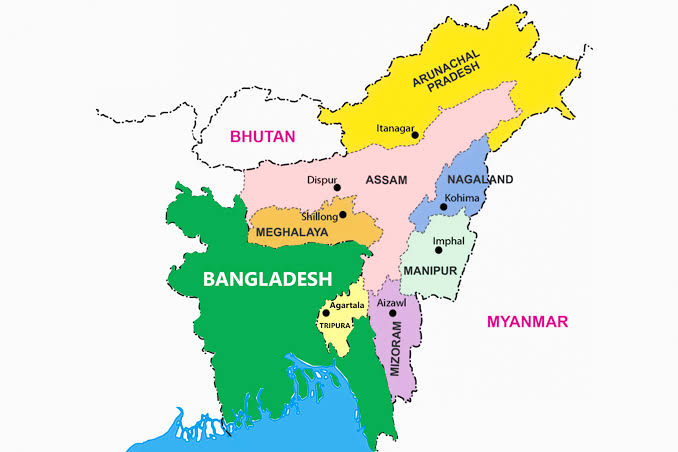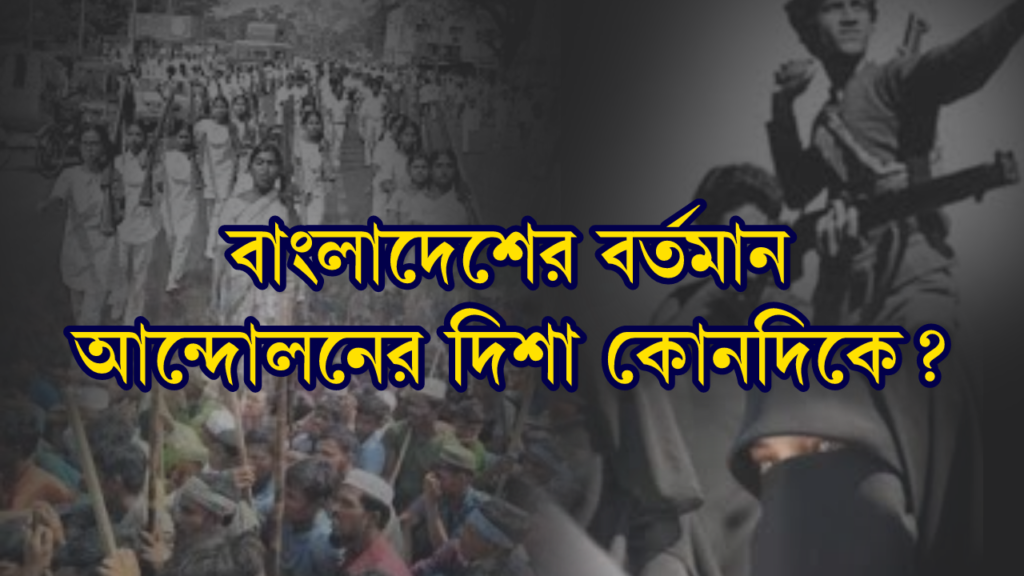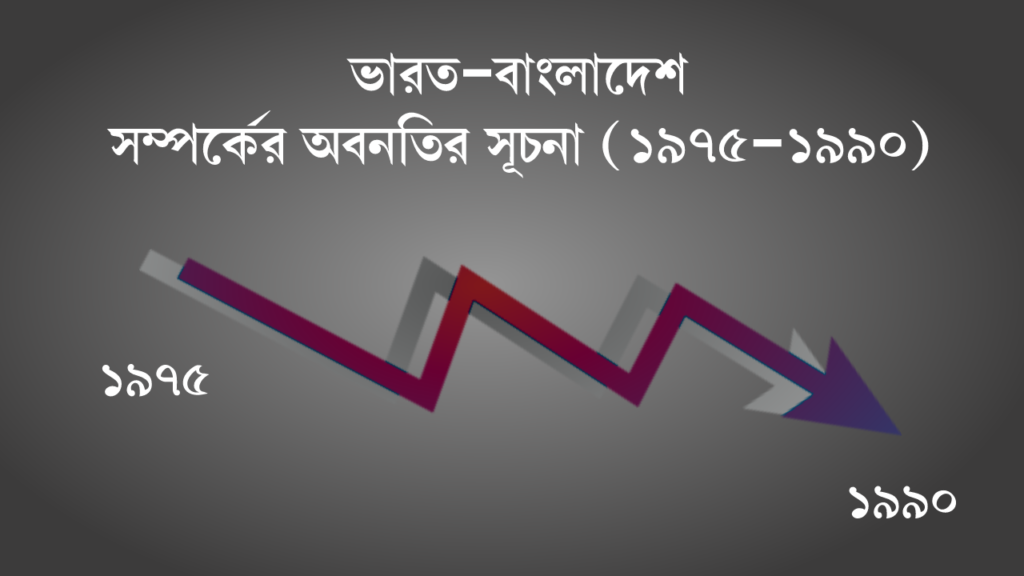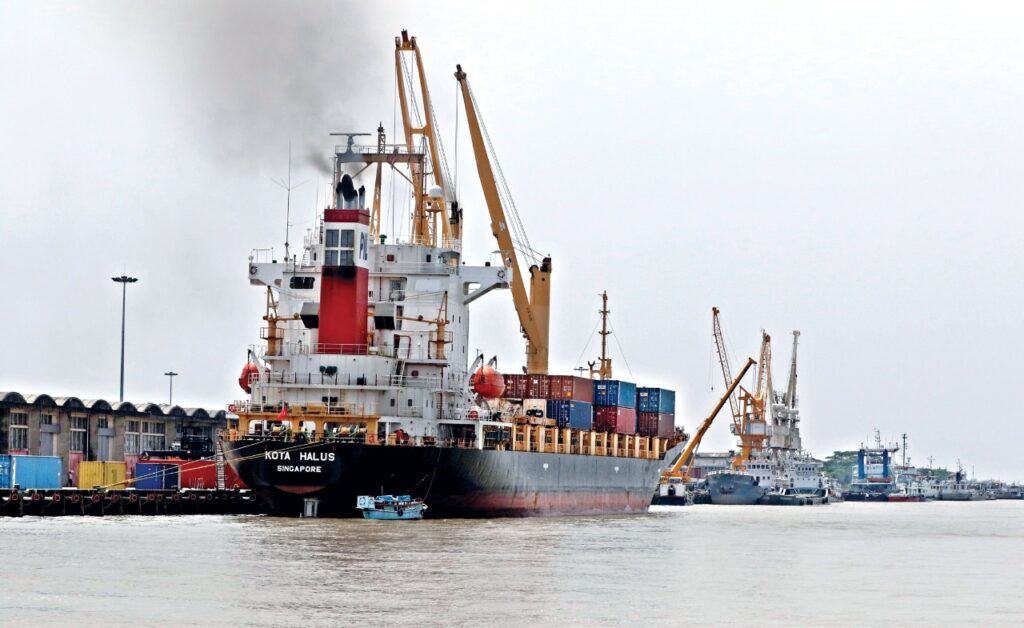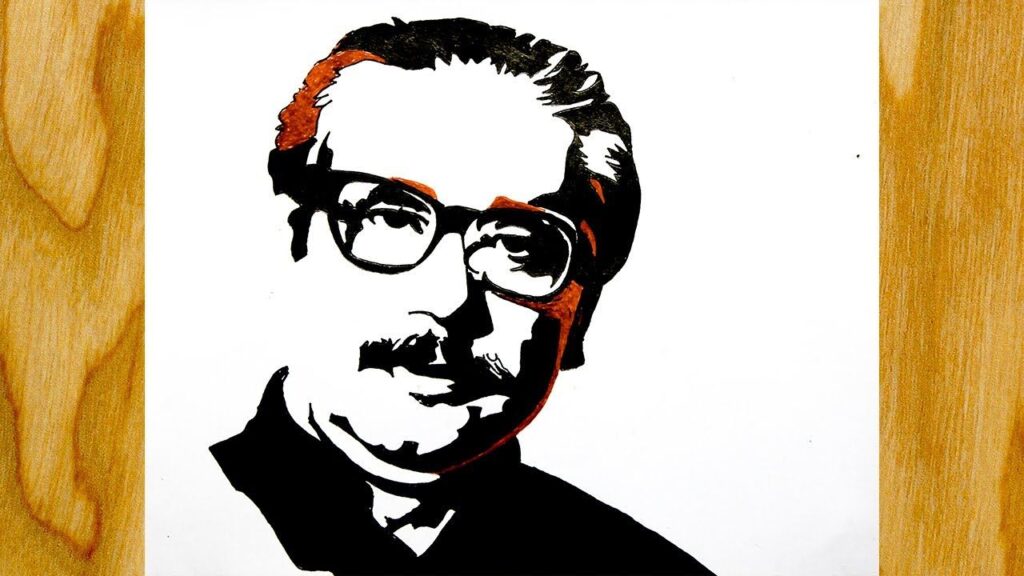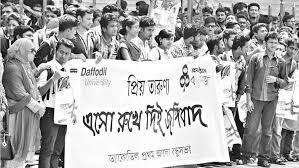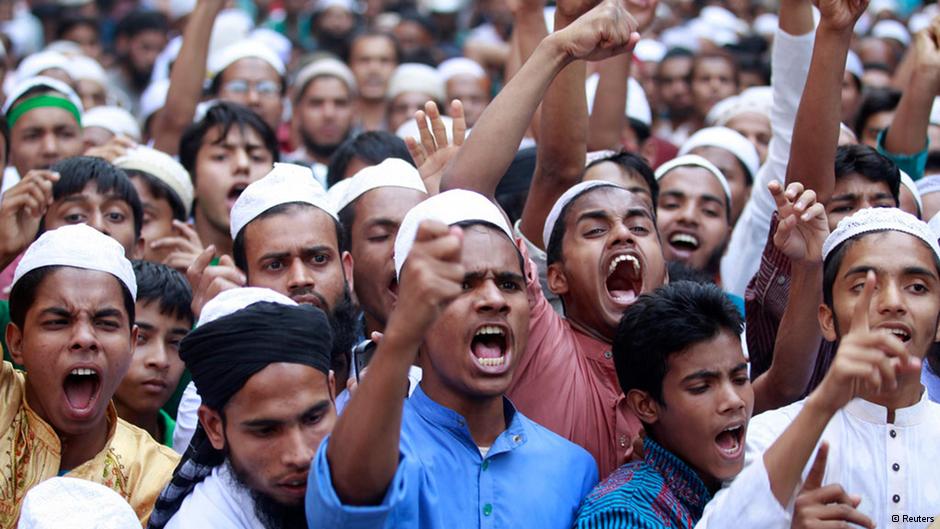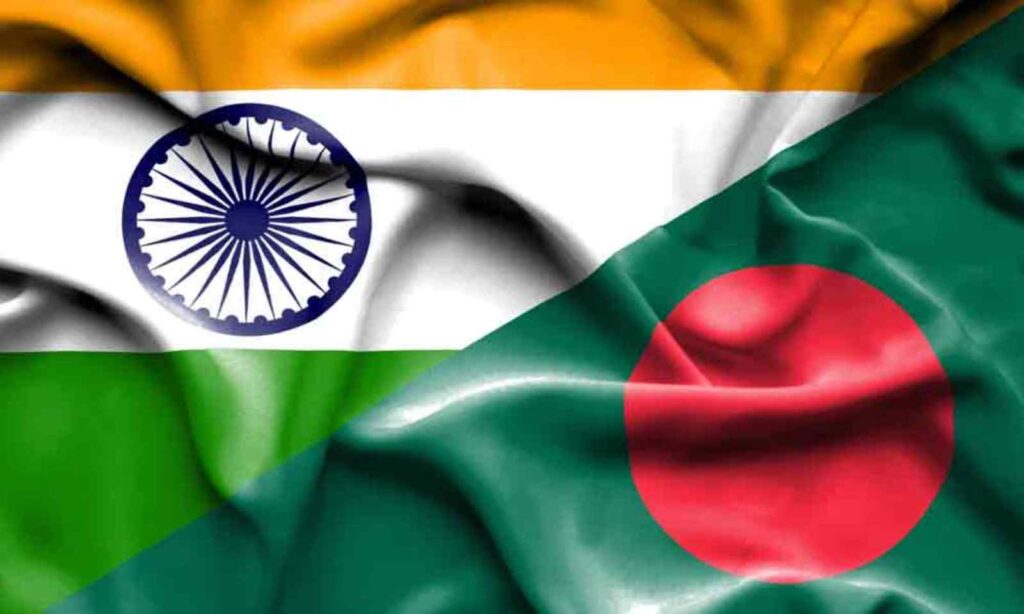মুক্তিযুদ্ধের স্বপ্ন ছিল গণতন্ত্র ও সুশাসন
Bimal Pramanik Director, Centre for Research in Indo-Bangladesh Relations যখন পাকিস্তানি সেনার বিরুদ্ধে পূর্ব-পাকিস্তানের জনগণ রুখে দাঁড়িয়েছিল, তাদের প্রধান দাবি ছিল গণতান্ত্রিক অধিকার প্রতিষ্ঠা ও সুশাসন। আমরা যারা মুক্তিযুদ্ধে জীবনবাজি রেখেছিলাম, লড়াই – এর ময়দানেও একথাটি কখনও ভূলে যাইনি। ব্যাপক গণহত্যা, দেশত্যাগ, ধ্বংসের মধ্যেও কখনও আশা ছাড়িনি দেশ স্বাধীনতা অর্জন করতে পারলে নিশ্চই আমাদের ‘স্বপ্নের বাংলাদেশ’ প্রতিষ্ঠিত হবে। আজকে স্বাধীন বাংলাদেশ প্রতিষ্ঠার পঞ্চাশ বছর অতিক্রান্ত। সেইসব মুক্তিযোদ্ধা যারা জীবিত আছে তারা আজ জীবন সায়াহ্নে। যারা যুদ্ধে শহিদ হয়েছে তাদের স্বপ্নও কি মৃত্যুর সাথে সাথে লীন হয়ে গেল ? একবার বিগত পঞ্চাশ বছরের দিকে আলোকপাত করা যাক। বাংলাদেশের ইতিহাসের প্রথম দশকের মধ্যেই স্বপ্নের গণতন্ত্র ধূলিস্যাৎ হয়ে গেল। যারা স্বাধীনতা সংগ্রামের প্রধান কান্ডারী ছিলেন তারা নির্মম –নৃশংস হত্যাকান্ডের শিকার হলেন, অসংখ্য মুক্তিযুদ্ধের সৈনিক নিহত হয়। সামরিক বুটের আস্ফালন ও দখলদারি ১৯৭১ সালে শেষ হয়েছে এমনটা সাধারণ মানুষ ভেবে নিলেও এত অল্প সময়ের ব্যবধানে সেই সামরিক বুট যে আবার রক্তের বিনিময়ে কষ্টার্জিত গণতন্ত্রের পিঠে আমূল ছুরি বসিয়ে দেবে আমরা কখনও ভেবে দেখিনি। আমি কখনও ইতিহাস বা রাষ্ট্রবিজ্ঞানের ছাত্র ছিলাম না, ছাত্র জীবনে তাই ইতিহাসের জ্ঞান অর্জন করার সুযোগ ঘটেনি। কিন্তু বাংলাদেশের ইতিহাসের পাঁচ দশক আমার সামনে ইতিহাস এবং রাজনীতির সাধারণ জ্ঞান কিছুটা উন্মোচিত করেছে। স্বাধীনতা প্রাপ্তির প্রথম দশকেই বাংলাদেশের ইতিহাসের গতিপথ নির্ধারিত হয়ে গেল। আবার বাংলাদেশী মোড়কে সেই পাকিস্তানি ইসলামি সামরিক শাসনের পুনরাবৃত্তি। কখনও সামরিক স্বৈরতন্ত্রের হুংকার, কখনও গণতন্ত্রের নামে ব্যাভিচার। এমনভাবেই কেটে গেল দুই দশক। শুরু হলো গণতন্ত্রের সংগ্রাম। কিন্তু দুই দশকে সদ্য স্বাধীন দেশের আমূল পরিবর্তন ঘটে গেছে। মুক্তিযুদ্ধের আকাঙ্খিত স্বপ্ন মলিন হয়ে গেছে। ‘স্বপ্নের সংবিধান’ ধর্ষিত হয়ে গেছে। সামরিক/স্বৈরাচারী শাসকগণ বাংলাদেশের সমাজ, রাজনীতি, শিক্ষা সংস্কৃতির এতই অবনমন ঘটিয়েছে যে সাধারণ জনগণের মনেও এই ধারণা জন্ম হয়েছিল যে, ‘পাকিস্তানের আমলে আমরা অনেক ভাল ছিলাম’। ইতিহাস সাক্ষ্য দেয়, মহাযুদ্ধগুলোর পরেও ধংসপ্রাপ্ত/ব্যাপক ক্ষতিগ্রস্ত দেশসমূহ আবার উঠে দাঁড়িয়েছে, দেশের সমাজ বদলেছে, নাগরিক অধিকার প্রতিষ্ঠিত হয়েছে। মানুষের ব্যক্তি স্বাধীনতার মূল্যায়ণ হয়েছে। এসব কারণেই মানুষ শত বিপদেও আশাহত হয়ে যায় না। দু’দশক পর আবার গণতন্ত্রের স্বপ্ন জেগে উঠল। জনগণের মধ্যে পুনরায় একটা আশার সঞ্চার দেখা যেতে লাগল। কিন্তু এতদিনে সমাজ এবং রাষ্ট্রে মুক্তিযুদ্ধের ফলে অর্জিত ফলাফল ভূলুন্ঠিত হয়েছে। মুক্তিযুদ্ধের প্রধান নেতৃবৃন্দ নিহত হওয়ায় এবং দ্বিতীয়/তৃতীয় সারির নেতা-নেত্রীদের অধিকাংশেরই আদর্শচ্যুতি ঘটায় মুক্তিযুদ্ধের কষ্টার্জিত আদর্শের বিভ্রান্তি ঘটেছে। সমাজে ও রাষ্ট্রে সংখ্যাগরিষ্ঠের ধর্মীয় অধিকার জাঁকিয়ে বসেছে। রাষ্ট্রে ধর্মীয় সংখ্যালঘুর অধিকার শুধু খর্বই হয়নি, জোর করে তাদের দেশ থেকে বিতাড়ন এখন নিত্য নৈমিত্তিক ঘটনা । কোনো দেশের গণতন্ত্র চর্চার অন্যতম প্রধান বিষয়টি হল সেদেশে সবধরণের সংখ্যালঘুর অধিকার নিশ্চিতকরণ ও সামাজিক নিরাপত্তা। এই সকল বাস্তব পরিস্থিতির প্রেক্ষিতে বাংলাদেশের গণতন্ত্র চর্চায় বারবার উত্থান পতন হয়েছে। আর সুশাসনের কথা যত কম আলোচনা করা যায় ততই ভাল। গত তিন দশকের রাজনীতি, নির্বাচন, সরকার, গণতন্ত্র ও নাগরিক অধিকার নিয়ে সংক্ষেপে দু’চারটি কথা বলা যেতে পারে। বাংলাদেশের ইতিহাসে স্বৈরতন্ত্র-বিরোধী গণতন্ত্রের অন্যতম বড় রাজনৈতিক লড়াই ছিল জেনারেল এ এইচ এম এরশাদের বিরুদ্ধে, ১৯৯০ সালে যার সমাপ্তি ঘটে। ‘স্বৈরতন্ত্র নিপাত যাক, গণতন্ত্র মুক্তি পাক’ গণআন্দোলনের এটা ছিল সবচেয়ে জনপ্রিয় স্লোগান। বাংলাদেশে ১৫, ৭ ও ৫ দলের তিন রাজনৈতিক জোটের মধ্যে মুজিব কন্যা শেখ হাসিনা, জিয়া পত্নী বেগম খালেদা জিয়া ও বামপন্থীদের নেতৃত্ব জনগণের ব্যাপক সমর্থন ছিল এই আন্দোলনে। সর্বসম্মতভাবে একটি ‘কেয়ার টেকার’ সরকারের মাধ্যমে একটি সুষঠু নির্বাচনের ব্যবস্থা করতে জোটগুলির ঐক্যমত প্রকাশে বাংলাদেশে গণতন্ত্রের ভিত তৈরি হবে বলে জনগণের বড় আশা ছিল। ১৯৯১ এর নির্বাচনের পর ১৯৯২ সালেই জনগণ আশাহত হল যখন সারা দেশব্যাপী সংখ্যালঘু হিন্দুদের বিরুদ্ধে ব্যাপক লুটপাট, অগ্নিসংযোগ, ও ধ্বংসযজ্ঞ চালানো হল ভারতে বাবরি মসজিদ ধ্বংসের অজুহাতে। গণতান্ত্রিকভাবে নির্বাচিত একটি সরকারের ছত্রছায়ায় মধ্যযুগীয় বর্বরতা প্রত্যক্ষ করলো সারা দেশ ও দুনিয়া। বাংলাদেশের সচেতন জনতা, এত লড়াই–এর অভিজ্ঞতা যাদের রয়েছে, তারা এই বর্বরতার বিরুদ্ধে রুখে দাঁড়াতে ব্যর্থ হল। গণতন্ত্রের অন্যতম শর্তই হলো সংখ্যালঘুর নিরাপত্তা ও অধিকার সংরক্ষণ এটা বিপন্ন হলে গণতন্ত্রের চর্চা ও বিকাশ সম্ভব নয় কোন দেশে। এরপর গণতন্ত্রের মুখোশের আড়ালে বড় আঘাত এলো ২০০১ সালে। সরকারের প্রত্যক্ষ মদতে কোনো একটি রাজনৈতিক দলকে নির্বাচনে ভোট দেওয়ার অভিযোগ এনে ধর্মীয় সংখ্যালঘু জনগণের উপর চালানো হল মধ্যযুগীয় বর্বরতা। সম্পদ লুট, নির্যাতন, গণহারে নারী ধর্ষণ, খুন, বসতবাটি ও দেশ থেকে জোরপূর্বক বিতাড়ন। সরকার, প্রশাসন প্রথম কয়েকমাস একথা স্বীকারই করতে চাইলো না যে, বাংলাদেশে ধর্মীয় সংখ্যালঘুদের উপর কোনো নৃশংস অত্যাচার হয়েছে। ‘গণতদন্ত কমিশনের’ তদন্ত প্রতিবেদনের ভূমিকায় বলা হয়েছে নিপীড়নের চরিত্র মোটামুটি নিম্নরূপ : নারী-পুরুষ-শিশু নির্বিচারে দৈহিক নির্যাতন ও কিছু কিছু লোমহর্ষক হত্যাকান্ড; নারীদের উপর যৌন নির্যাতন ও শ্লীলতাহানি; বসতবাটি, দোকানপাঠ, ব্যবসায়িক প্রতিষ্ঠানে ধ্বংসসাধন, অগ্নি সংযোগ; কোন বিশেষ রাজনৈতিক দলকে ভোট দেয়ার অভিযোগ এনে বসতবাটি থেকে বিতাড়ন এবং অনেক ক্ষেত্রে দেশ ত্যাগের ঘটনাও ঘটেছে; গণহারে চাঁদাবাজি, ক্ষেত্রবিশেষে ধর্মান্তরের ও দেশত্যাগের হুমকি। এই অত্যাচারে শুধু হিন্দু ধর্মাবলম্বী সংখ্যালঘুরাই নির্যাতিত হয়নি, খৃসটান ধর্মাবলম্বী ও আদিবাসী সংখ্যালঘু সদস্যরাও রেহাই পায়নি।১ গনতদন্ত কমিশনের প্রতিবেদনে নির্যাতনের কিছু বৈশিষ্ট্য উল্লেখ করা হয়েছে : ১) এসব নির্যাতনের পেছনে প্রচ্ছন্নভাবে যে মতাদর্শ, কর্মপরিকল্পনা এবং প্রাতিষ্ঠানিক কাঠামো কাজ করেছে তার নিয়ামক শক্তির মুখ্য উদ্দেশ্য হচ্ছে সাম্প্রদায়িকতাকে একটি রাজনৈতিক হাতিয়ার হিসাবে সৃষ্টি এবং সংহত করার মাধ্যমে বাংলাদেশের ধর্মাশ্রয়ী রাজনীতির প্রভাব বহুলাংশে বৃদ্ধি করা, যা সেই নিয়ামক শক্তির সহায়ক হিসেবে কাজ করবে। দেশের রাজনৈতিক দলগুলো এই সত্য অনুধাবন করতে পারলেও বিভিন্ন কারণে এর বিরুদ্ধে কখনও সোচ্চার হয়নি, প্রতিরোধ গড়ে তুলতে সচেষ্ট হয়নি। ২) এবারকার সংখ্যালঘু নির্যাতনের মোকাবিলায় সরকারি প্রশাসনের ভূমিকা, প্রচার মাধ্যম, জনসাধারণ এবং সচেতন নাগরিক সমাজ কতৃক ব্যাপকভাবে সমালোচিত হয়েছে এবং তদন্ত কমিশনের কাছে উপস্থাপিত বিভিন্ন সংস্থার রিপোট ও সাক্ষ্যে তার প্রমান পাওয়া গেছে। দেখা গেছে, আক্রমণকারীরা বেশিরভাগ ক্ষেত্রেই স্থানীয় মানুষজন বিধায় ভূক্তভোগীরা এদের প্রায় সকলকেই নাম-ধামসহ শনাক্ত করতে পেরেছে। এতদসত্তেবও ঘট্নার তিন মাস পরের রিপোটগুলোতেও দেখা যাচ্ছে যে গ্রেফতারের সংখ্যা নগণ্য এবং সন্ত্রাসীরা স্ব- স্ব এলাকায় স্বদম্ভে বিচরণ করছে। এই পরিপ্রেক্ষিতে ধারণা হওয়া স্বাভাবিক যে, প্রশাসন প্রভাবিত হয়ে আইনের যথাযথ প্রয়োগ থেকে বিরত থেকেছে এবং পাকিস্তানী আমলের সাম্প্রদায়িক সরকারের আদলে নীরব সম্মতি এবং কিছু কিছু ক্ষেত্রে আক্রান্তদের প্রতি বৈরী আচরণের মাধ্যমে সন্ত্রাসীদেরই উৎসাহিত করেছে, বাংলাদেশ স্বাধীন হবার পরে যা আর কখনোও ঘটেনি। ঘটনাগুলো বিশ্লেষণ করে এই সিদ্ধান্তে উপনীত হয়েছে যে, আগের নির্যাতনের সঙ্গে এবারকার নির্যাতনের একটি বড় পাথক্য হল এর ব্যাপকতা ও তীব্রতায় এবং নিযাতন ঘটেছে সংখ্যালঘু নাগরিকদের সামাজিক অবস্থান, নির্বিশেষে নিম্নবিত্ত, উচ্চবিত্ত এমনকি পেশাজীবী সংখ্যালঘুরাও এবার নিস্তার পায়নি। এ থেকে মনে হওয়া স্বাভাবিক যে, এ ধরণের ব্যাপক সহিংসতা পূর্বপরিকল্পনা ছাড়া বিচ্ছিন্নভাবে ঘটানো সম্ভব নয়। তদন্ত কমিশনের মনে হয়েছে যে এই সব পরিকল্পিত হিংস্রতার পেছনে একটি সুদুর প্রসারী লক্ষ্য ও উদ্দেশ্য রয়েছে ।এর মধ্যে রয়েছে : (ক) বাঙালী সমাজ ব্যবস্থায় বহুত্ববাদী ধারণাগুলোর (Concepts of pluralism), …


